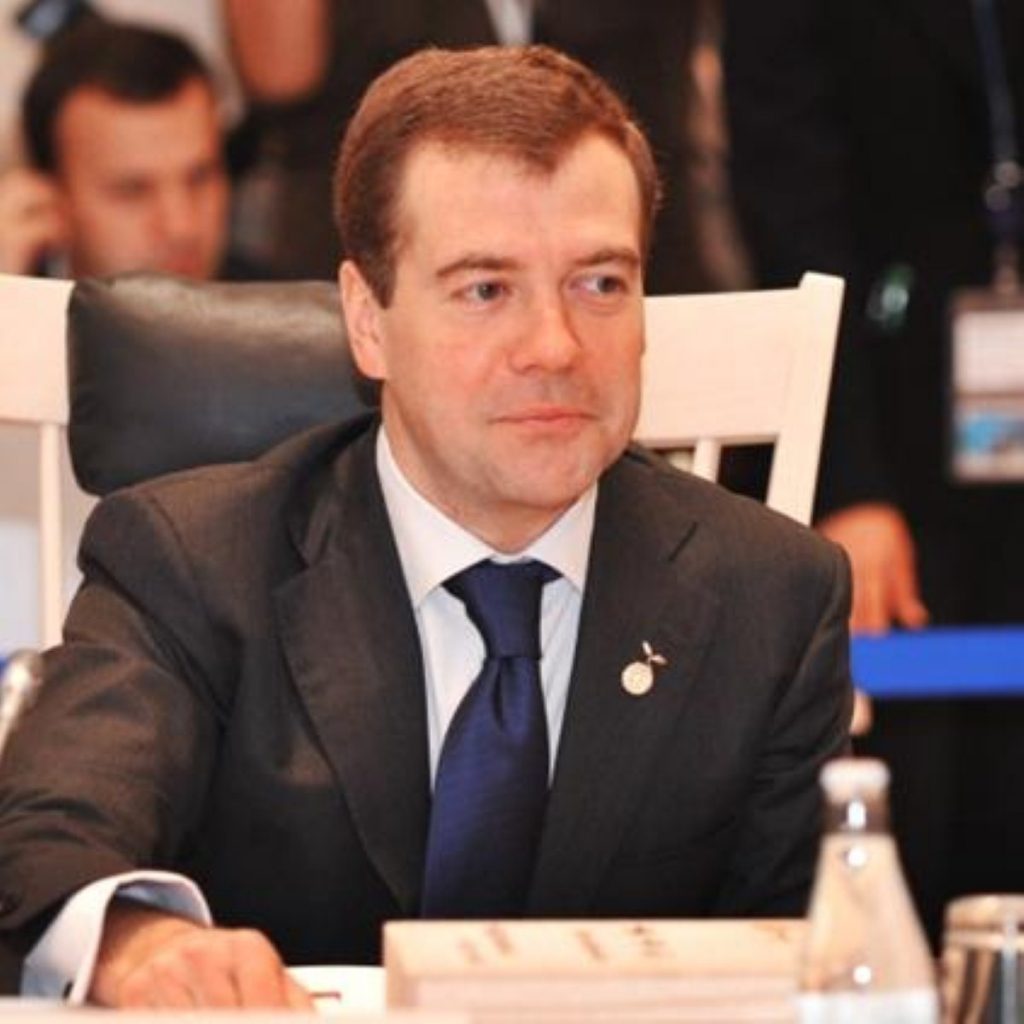Analysis: Russia proving a tough nut to crack
Russia is unlikely to shift its opposition to a resolution against Syria at the UN security council – however optimistic British diplomats may be.
By Alex Stevenson Follow @alex__stevenson
The western goal was put on the table – literally – 11 days ago in New York. Britain and France had jointly drafted a resolution against the Syrian government. They were motivated by developments within Syria, where Bashar al-Assad is following Libyan renegade leader Muammar Gaddafi's lead in brutally suppressing pro-democracy protests. Is the west going to respond in the same way? Not if Russia has anything to do with it.
Moscow abstained during the crucial UN security council vote which permitted a no-fly zone over Libya. Even that was a close-run thing: Russia, like China, is deeply suspicious of any move which undermines the concept of national sovereignty. It responded tetchily to western antagonism over its own actions against Chechnya separatists.


So persuading it to allow moves against Libya was a big ask. Britain and France spent much political capital winning the Russians over. Dmitry Medvedev went out on a limb to persuade a deeply reluctant Russian establishment that it was worth letting this one go. It's far from clear he will be able to do so again.
The draft Syria resolution doesn't go nearly as far as the Libya one, avoiding talk of military intervention. It is a resolution of censure, not action. But Russian diplomats think this goes too far. They suspect it is the thin end of the wedge. They distrust the western impulse to intervene – whether in Kosovo, or in Iraq, or in Libya, or eventually – they fear – in Syria.
Russian cynicism runs deep. Officials privately point to Nato's steady eastward expansion since the fall of the Berlin Wall, as proof of the west's unreliability. Mikhail Gorbachev, they say, received reassurances before the end of the Cold War that Nato would steer clear of Russia's traditional sphere of influence. Two decades later, Nato is in Afghanistan. So, they argue, who is to say a first resolution on Syria will not pave the way for a second one, authorising a full intervention, later on this year?
The Foreign Office hopes that the deteriorating situation in Syria could erode reluctance among security council members. They are confident of winning over Brazil and South Africa, taking the number of votes for the resolution up to 11 out of 15. If Russia uses its veto, these efforts will have been wasted.
Russia is in no mood for granting further favours. There is no need to create another source of instability in the Middle East, their diplomats argue privately. Just look at Libya: a conflict the west entered in a hurry without a real exit strategy. Pro-Gaddafi forces are evenly matched with the rebels, with no end in sight. Just like Lenin and Stalin, they muse. The only option is to fight to the end.
"One can argue they've had a good point for some time," says Roland Dannreuther, head of the Politics and International Relations department at the University of Westminster.
"They have a more conservative view of international relations which is that countries should be permitted to develop autonomously and there shouldn't be external interventions in their internal affairs."
The western experience in Iraq, and the ongoing one in Libya, seem to give growing credence to a Russian attitude which has, historically, been one based purely in terms of self-interest.
Not that the old Russian mindset has changed. Prof Dannreuther suggests Russia may be less enthusiastic about the switch to democracy in the Middle East than western countries because of its equivocal relationship with democracy.
Where western states view Bashar al-Assad's government as a "horrendous regime", he says, Moscow views it as an "authoritarian regime which is keeping stability in the country" – exactly the old attitude which London, Paris and Washington are trying to end. "Without that stability," Prof Dannreuther adds, "Russians believe you could have chaos, with radical Islamists coming to power".
Other factors play a part too. Russia and Syria had a significant relationship during the Soviet period. They've been strong allies in many respects, including arms. Russia has also supported Syria in terms of the Arab-Israeli peace process, giving it extra leverage in the region. Similar links with Gaddafi's regime have put Russia in a strong position as a mediator between the west and Tripoli. But the same advantages don't quite work when it comes to Syria.
All of which reinforces Russian reluctance to permit even a censuring resolution at the security council. The Foreign Office is hopeful of a "change of heart" – but it will take a lot more courting to win over Moscow on this one.












